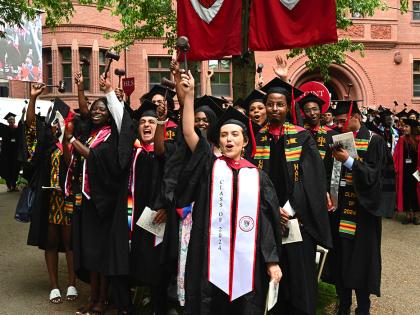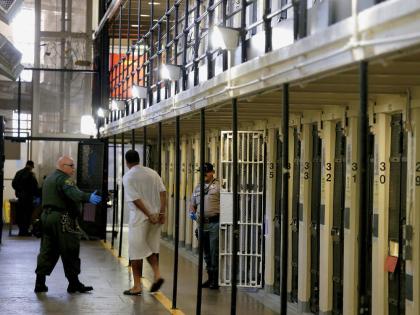Aaron Lansky, who took his master's degree in east European Jewish studies in 1980 with Ruth Wisse at McGill, would seem at first glance living proof that Yiddish is indeed being revived. Lansky, who set off after graduate school to rescue Yiddish books in danger of being lost, is now director of the National Yiddish Book Center in Amherst, Massachusetts, repository of more than a million volumes. The center, with an imposing new campus, has a national membership of some 30,000 people.
Nevertheless, Yiddish is not even remotely part of the mainstream of Jewish life today, according to Lansky. Interest in the language--for scholarly reasons, for reasons of nostalgia, ethnic pride, or connection to a half-forgotten past--is greater than ever. As evidence, he points to the enthusiasm for klezmer music, Yiddish theater, and vintage films, in addition to his own enterprise. However, the Yiddish language, he says, is af tsoris [in trouble].
The reasons are many. "Yiddish did not exactly die a natural death," Lansky reminds us. One of every two Yiddish speakers was, after all, murdered in the Holocaust. "As though that weren't enough," he notes, "many Jews escaped the Nazis by fleeing to the Soviet Union, where mounting repression finally culminated on August 12, 1952, when Stalin ordered the execution of his country's major Yiddish writers and intellectuals on a single night. How can we expect any literature, any language, any culture to recover readily from depredations of such magnitude?"
Then, too, in Israel, the official language is Hebrew. The very Orthodox in Israel and elsewhere tend to converse in Yiddish, but this, like their way of life in general, is a barrier, a way of segregating themselves from the secularism of modern society. And these religious Jews are hostile to Yiddish literature, which to them is likewise a symptom of modernity. (It should also be mentioned that more than half the population of Israel is Sephardic in origin, meaning that their linguistic traditions had nothing to do with Yiddish, an Eastern European, or Ashkenazic, phenomenon.)
Here in North America, Yiddish was quickly phased out as soon as Jews entered the mainstream. Let's return to Ruth Wisse: "When the Jews of Europe were annihilated, American Jews were left without a linguistic homeland to revisit; unlike Italians or Greeks, they could not look forward to speaking the language of the old country with their relatives in Europe." Today, of course, the Yiddish-speaking old-timers are becoming increasingly rare.
"For all the talk of its revival," continues Wisse, "Yiddish actually has too few trained scholars who are capable of translating, editing, teaching, and interpreting its vast and varied accumulated heritage; it can claim even fewer creative artists sufficiently at home in the language to renew its performance repertoire. For any revived interest in immigrant languages to bear fruit, sentiment would have to yield to programs of formal and serious study, and serious study of any culture usually challenges the rosy images on which much of the sentiment is based."
Justin Cammy, Wisse's student, says, "This business about hope, about trying to revitalize Yiddish as a spoken language, this isn't why I got into Yiddish. History has already played itself out. English has won, and Hebrew has won. But you still have to approach Yiddish the way Professor Wisse does, with the utmost seriousness, because it's the key to a whole culture."








